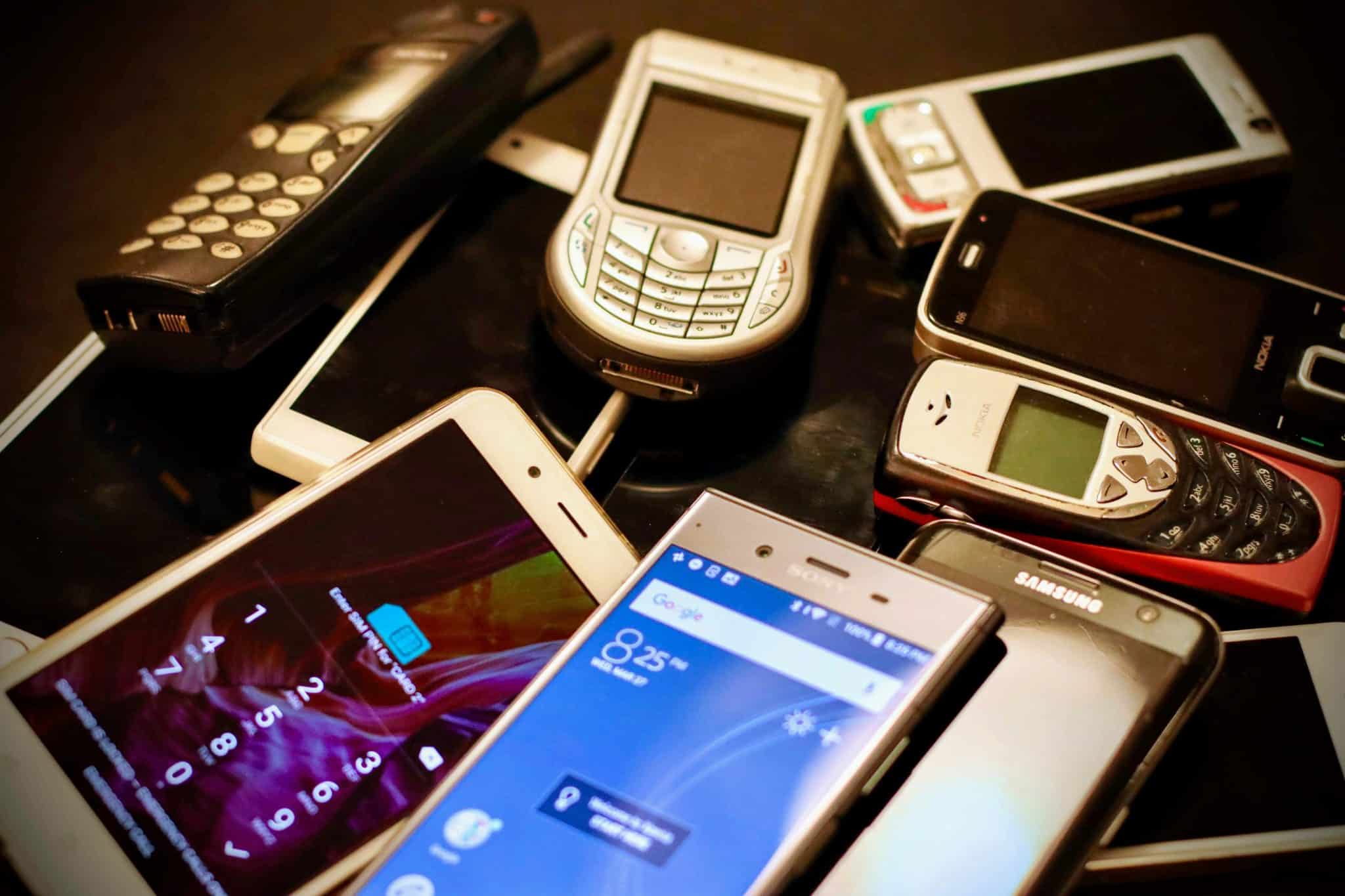Mental Gymnastics: Training Your Brain to Resist Digital Distractions

Photo by That’s Her Business on Unsplash
Ever felt your pocket vibrate, only to find out your phone was sitting on the table? That’s phantom vibration syndrome for you. Imagine the number of times you check your phone because it actually buzzed. Our world has witnessed an incredible surge in digital consumption, especially with smartphone dependency.
But why are these pings, dings, and vibrations so alluring?
You see, every notification triggers a release of dopamine, a neurotransmitter that makes us feel good. It’s the same chemical that gets released when we eat our favorite food or receive a compliment. Now, who could resist that?
The correlation between digital distractions and decreased productivity
Since the dawn of smartphones, we’ve seen an astronomical rise in digital consumption. Who would’ve thought that these pocket-sized gizmos would morph into attention-hungry monsters?
From virtually zero to 3 hours a day, that’s how much the average person spends on their smartphone. And guess what? Almost every minute is punctuated by some notification.
- The time cost of distractions: Studies reveal it takes around 23 minutes to refocus after a single interruption. Add up those minutes, and you’ve got hours of lost productivity each day.
- Mental toll: Beyond time, there’s a mental cost too. Constant interruptions don’t just break our focus; they drain our cognitive resources, leaving us mentally fatigued.
Brain Bootcamp: Fighting Off Digital Intruders
The science behind cognitive exercises and mental strength
Ever heard of gym buffs talking about muscle memory? Your brain has something similar!
- Neural plasticity: Our brains aren’t static; they’re dynamic. Our brains can change and adapt. This ability, known as neural plasticity, means that with the right exercises, your brain can strengthen its focus.
- Regular brain buffing: Like any workout regimen, consistency is key. Regular cognitive exercises aren’t about turning your brain into a supercomputer but more about making it resilient. The more you practice, the better you get at staying on task.
Answering the burning question: How can mental exercises help in combating digital distractions?
- Flexing those mental muscles: Mental exercises are all about building up our attention control. Your brain, much like your body, has muscles. Well, not actual muscles, but areas that control specific tasks.
- Resisting digital sirens: Once your brain’s trained, resisting those tempting notifications becomes easier. With a well-trained mind, it becomes just another sound. No more dropping everything for every beep or buzz.
Brain Workouts to Counteract the Lure of Constant Notifications
Photo by Katerina May on Unsplash
The best “brain workouts” to resist digital distractions
Ever felt that itch to check your phone when it buzzes, even if you’re in the middle of something super important? Yep, most of us have been there. So, how do you strengthen that mental muscle to resist the pull? Here are a few workouts to help:
- Meditation and mindfulness exercises:
You know that feeling where you’re “here” but not here? Meditation pulls you back. Just 10 minutes of mindfulness a day can help anchor your attention, reducing the allure of that ever-beeping phone. It helps you zoom out, calm the storm, and keep that focus laser-sharp. Not to mention, being present in the moment means you’re less likely to jump at every ping.
- Cognitive exercises focused on attention control:
Cognitive exercises train your brain to hold its ground amidst chaos. And guess what? The more you practice, the better you become at shrugging off those notifications.
Cognitive Exercises to Strengthen Focus
A. Brain Games and Puzzles
Ever played a game and lost track of time because you were so engrossed? Well, that could be your brain getting a workout. 🧠💪
1. Overview of Brain-Training Games
You see, the brain isn’t so different from the muscles in your body. It needs regular exercise to stay sharp. But instead of lifting weights, your brain benefits from puzzles and challenges that push its limits.
2. Popular Apps and Tools for Cognitive Exercises
- Lumosity: Like a gym for your brain, it offers a variety of games that challenge memory, attention, and more.
- Peak: Games designed by neuroscientists to exercise your cognitive skills.
- CogniFit: Think of it as your personal brain trainer. Tests your abilities and recommends daily workouts.
Did you think all game time was wasted time? Think again! Just remember, moderation is key. You wouldn’t want a brain muscle pull, would you?
B. Memory Improvement Techniques
Remember that time you forgot where you put your keys or your sunglasses that are on the top of your head? It’s like your brain decided to play hide and seek without telling you.
1. Mnemonics and Memory Palace Technique
- Mnemonics: Ever tried tying information to a catchy song or phrase? That’s a mnemonic. It’s a memory trick that uses associations to help our brains hold onto information.
Example: Want to remember the Great Lakes? Just think of the acronym HOMES – Huron, Ontario, Michigan, Erie, and Superior.
- Memory Palace Technique: This involves imagining a familiar place, like your home, and associating items you want to remember with specific locations or objects within that place.
Example: Suppose you need to buy milk, bread, and eggs. Imagine opening your front door and a cow greeting you (for milk). Walk into your living room, and the couch cushions are fluffy loaves of bread. Head to the kitchen, and a chicken is waiting by the fridge to offer you some eggs.
2. Memory-Boosting Habits to Adopt
- Regular Sleep: Just as your body needs rest, so does your brain. Think of it as recharging your mental batteries.
- Healthy Diet: Omega-3s, found in fish and nuts, are like superfoods for your brain.
- Physical Exercise: Physical activity boosts blood flow, even to that noggin of yours. More blood, more oxygen.
Okay, so you’ve got the tools, but how do you weave them into the fabric of your day?
- Setting aside dedicated time for cognitive exercises. Carve out specific brain-training time. Maybe during lunch breaks or before bedtime. Even 15 minutes can work wonders.
- Using brain training apps and other resources. Apps like Freedom not only manage screen time but also provide a playground for your mind.
- Consistency is the golden ticket. Think of brain training as watering a plant. A little every day makes it flourish.
Translating Mental Strength to Real-World Productivity
Applying Mental Fitness to Enhance Productivity: How building mental strength boosts focus and task completion
Have you ever seen those folks who, despite chaos swirling around them, remain laser-focused on the task at hand? Their secret? A trained mind. And trust me, it’s not some exclusive club—anyone can join with a bit of perseverance. The connection between resisting digital distractions and achieving goals:
It’s simple math. Fewer distractions = more focus. More focus = smashing those goals.
Let’s not just feel the difference, let’s measure it.
Okay, let’s get a tad geeky here. You’ve trained your mind, and seen improvements, but how do you really measure the progress? And why should you even bother?
Did you know there are apps that monitor how often you unlock your phone or dive into social media? It’s like a pedometer, but for your digital footprint.
First off, recognizing growth is exhilarating.
Reduced your phone check-ins by 10 times a day? That’s a win. Tackled a task without peeking at Instagram? Bravo! It’s the small steps that lead to leaps.
Here’s what you can do:
- Use Time-Tracking Tools: Apps like Toggl or RescueTime give you a snapshot of your productivity. Watch out for increasing chunks of focused work time.
- Set Clear Milestones: Whether it’s reading 20 pages a day without checking your phone or completing tasks without meandering to YouTube or TikTok. Every milestone reached is a feather in your cap.
- Journal Your Achievements: At the end of each week, jot down what you accomplished. It can be as simple as “Didn’t check my phone for two hours straight” or “Finished the project two days before the deadline.” Celebrating these moments boosts motivation.
Beyond Training: Creating a Distraction-Free Environment
Practical tips to minimize digital intrusions
In an age of endless notifications, how do you cultivate that fortress of solitude? How can you build that personal Zen space?
- Adjusting smartphone settings to reduce non-essential notifications:
Let’s start simple. Dive into your smartphone settings.
Do Not Disturb: This isn’t just for sleep. Schedule chunks of your day when only priority calls get through. Why? Well, because not every app needs to announce its existence.
Notification Center: Be ruthless. Do you really need to know every time someone liked your tweet?
Mute those non-essential apps. Remember, less buzz equals more focus.
- Creating a workspace that minimizes digital temptations:
Think of it as crafting your personal battle station against distractions.
Physical Layout: Ensure screens or devices not essential for your task are out of sight. Out of sight, out of mind, right?
Your Turn: Design your workspace to make tech distractions a bit of an effort. Maybe it’s placing your phone slightly out of reach or using apps like, you guessed it, Freedom to block out those digital noise-makers. Feel the change yet?
Conclusion: The Path to a Distraction-Resistant Brain
So, we’ve journeyed through the realms of brain training and are now, creating that oh-so-important distraction-free environment. And you might be wondering, “Is it worth the effort?” In a word: Absolutely.
Sure, the digital world isn’t going anywhere, and frankly, we don’t want it to. But, like with any relationship, setting boundaries is healthy.
Isn’t it about time we reclaimed our mental space? Muted those incessant digital taps on our shoulders? With tools like the Freedom app and a sprinkle of determination, you’re not just setting up a distraction-free zone; you’re laying the foundation for unparalleled productivity.
Ready to test your mental strength in the real world? Challenge yourself to a 30-minute session in a public space. To support your journey, download the Freedom app and customize your distraction settings.
Written by Arlene Texeira


